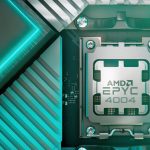
NIO (NYSE:NIO), one of the leading EV manufacturers in China, has certainly managed to live up to its hype. At the dedicated event in the city of Chengdu, NIO unveiled its new sedan, a larger battery, and a ton of new features.
NIO ET7 Sedan
NIO ET7 sedan was undoubtedly the star of the show. The sedan features a heartbeat taillight, a spacious interior, and can be unlocked with the world’s first UWB digital key. The door’s e-latch automatically protrudes as the driver approaches the vehicle. Once seated, a tiny pull from the driver closes the door automatically. The EV also features a large laminated all-glass roof and NIO 2nd-gen smart cockpit. ET7 has a drag coefficient of 0.23 and a range of over 500 km with the standard 70-kWh battery pack. However, with the newly introduced 150-kWh battery pack, the EV’s range will increase to over 1,000 km. The vehicle has a maximum power output of 480kW and max torque of 850Nm. The ET7 can accelerate from 0 to 100km/h in 3.9 seconds.
NIO ET7 users also get free lifetime warranty, lifetime Power Swap benefits, free Power Home, lifetime free connectivity, and lifetime free out-of-town service. As far as the pricing is concerned, the ET7 will retail for RMB 448,000 ($70,000) – before the application of subsidies – with the base 70-kWh battery pack. However, if users subscribe to the company’s Battery-as-a-Service (BaaS) facility, the model’s price would be slashed to RMB 378,000 ($59,000). The ET7 can now be pre-ordered from the NIO app by paying RMB 5,000. With this deposit, RMB 10,000 will be slashed from the total retail price of the ET7. Deliveries will commence in Q1 2022.
NIO’s 150 kWh Solid-State Battery
NIO had removed the wraps from its 100-kWh battery pack earlier in November 2020. Built upon the intellectual property gleaned from 300 patents, this battery pack incorporated a highly integrated Cell to Pack (CTP) design, a dedicated cloud-based Battery Management System (BMS), and an all-weather temperature control system.
NIO customers can currently rent the entry-level 70-kWh battery pack by paying only RMB980 ($151) per month under the company’s Battery as a Service (BaaS) facility, thereby slashing RMB70,000 ($10,116) off the purchase of NIO’s EVs. The company is now also allowing its customers to upgrade to the 100-kWh battery pack by availing flexible monthly and yearly lease plans under the BaaS facility, equating to around RMB 880 per month or RMB 7,980 per year
At the event today, NIO introduced its new 150-kWh battery. Crucially, this is a solid-state battery with an increase of over 50 percent in its energy density to 360 Wh/kg. It incorporates an in-situ solidification hybrid electrolyte, an inorganic pre-Lithium Si/C composite anode, and a Nickel-ultrarich cathode with nano-coating. This battery would increase the range of the new ES8 to 850 km, the ES6 to 900 km, and the EC6 to 910 km. However, the most surprising is the new ET7 sedan’s range that will now cross 1,000 km. This battery is expected to debut in Q4 2022.
NIO Autonomous Driving (NAD)

During the Beijing International Automotive Exhibition 2020 held in late September, NIO had unveiled the OS version 2.7.0 of its Navigate on Pilot (NOP) feature. This is an Advanced Driver-Assistance System (ADAS) that leverages 23 sensor devices and high-precision mapping to provide location accuracy of up to 20cm. The NOP provides route optimizing service along with lane change recommendations. It can also automatically steer the vehicle along a pre-set route.
At the event, NIO went a step further by introducing its autonomous driving feature (NAD). The company’s Aquila Sensing features 11 8MP high-resolution cameras (greater resolution than Tesla’s 1.2MP camera) that can detect vehicles 680m away and pedestrians over 220m away. The Aquila also contains a high-resolution lidar sensor that has been developed in collaboration with Innovusion. The lidar sensor features a 1550nm laser, a 120 degree field of view, and a range of up to 500m. The entire Aquila system is built upon the concept of multiple redundancies to enhance safety. The system can dynamically focus on an object of interest to obtain granular details, allowing for the accurate detection of even small objects. Finally, as part of its 33 sensing units, Aquila contains a 5mmWave radar, 12 unltrasonic sensors and 2 high-precision positioning units.
As far as Aquila’s software specs are concerned, it has a throughput of 8GB per second. This data is processed by an onboard computer, called ADAM. The computer consists of 48 A78 CPU cores, 256 3rd generation Tensor cores, 8,096 CUDA cores, and 68 billion transistors, boasting a total computing power of 1,016 Tera Operations Per Second (TOPS). This raw power is 7 times that of Tesla’s FSD. The system is built upon 4x NVIDIA Drive Orin SoC. The ET7 will be NIO’s first production model to feature the Orin SoC. NIO customers can subscribe to NAD as a service by paying RMB 680 ($105) per month.
New Battery Swap Stations 2.0

NIO is currently utilizing over 1,200 patents to enable the fastest battery swap service in the world, allowing for a fully-automated battery swap in under 3 minutes. During this process, automatic battery and electric system checks are also conducted in order to ensure the smooth functioning of the EV. The battery swap stations themselves occupy a subdued footprint, taking up only three parking spaces while allowing for scalability due to their modular design.
The Battery Swap Station 2.0 can accomodate 13 batteries, increasing its capacity significantly. Each station would be able to perform 312 swaps per day. Moreover, NIO EVs would be able to automatically park into the station. The company expects its total number of deployed Power Swap stations to reach 500 in 2021.
Live Stream
Readers can watch the entire NIO Day 2020 event here:
Here is the coverage of the entire event with commentary in the English language:
The post NIO Day 2020 Goes Live – ET7 Sedan, 150 kWh Solid-State Battery, NIO Autonomous Driving, and New Battery Swap Stations Revealed by Rohail Saleem appeared first on Wccftech.
Powered by WPeMatico












